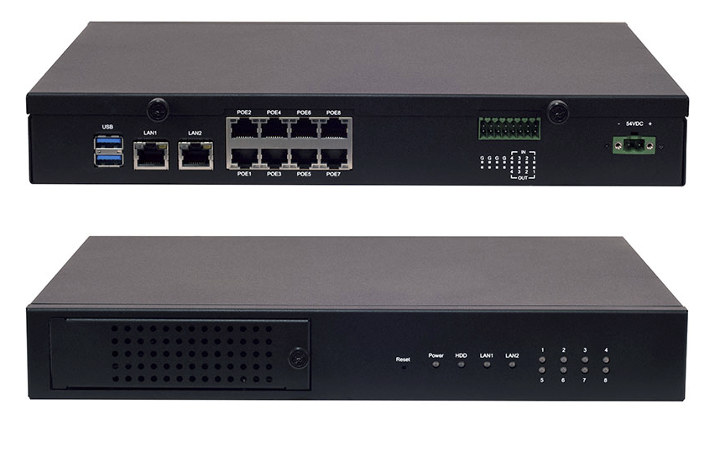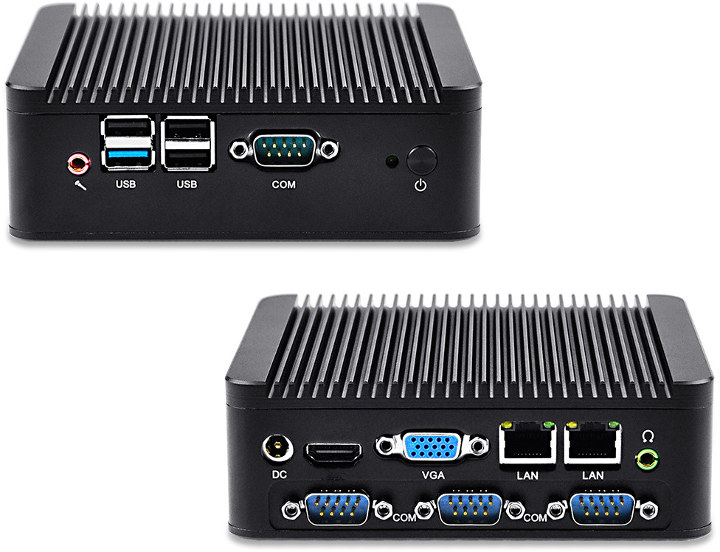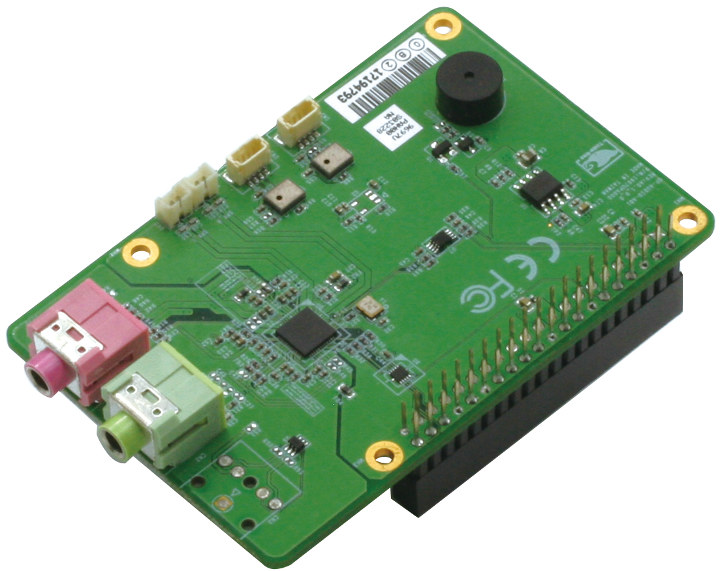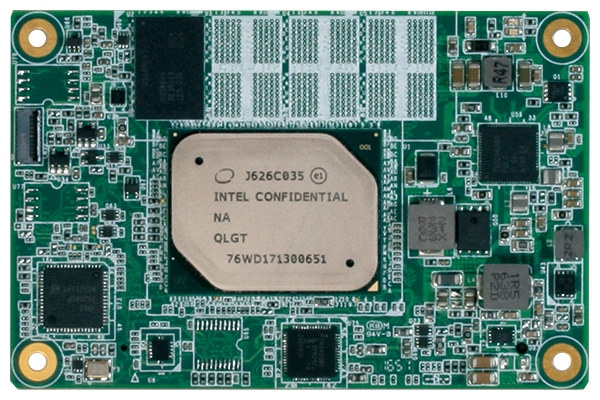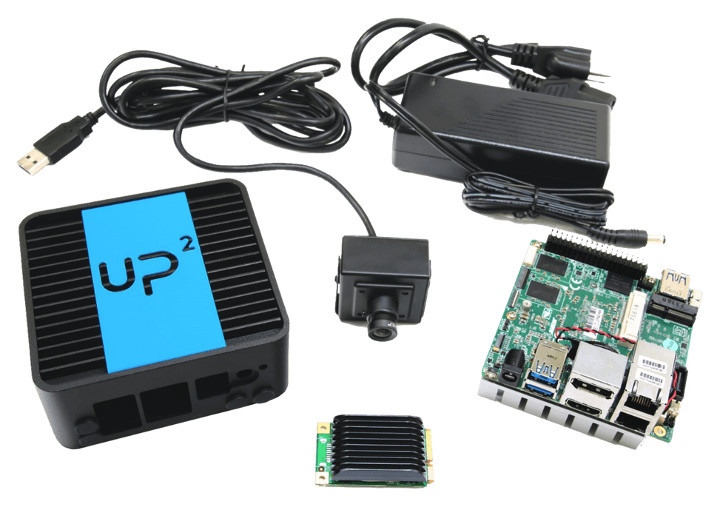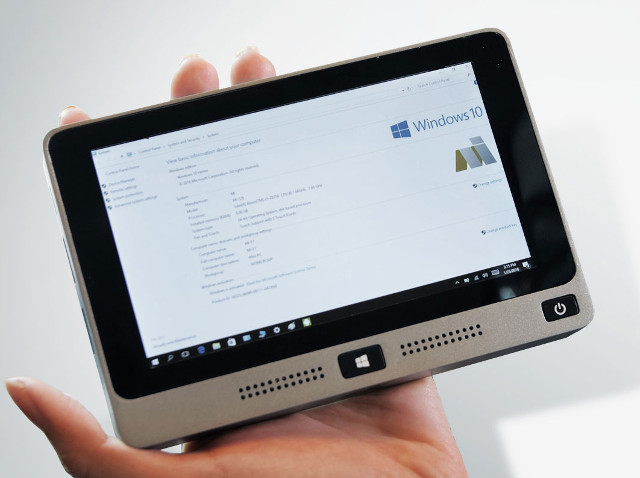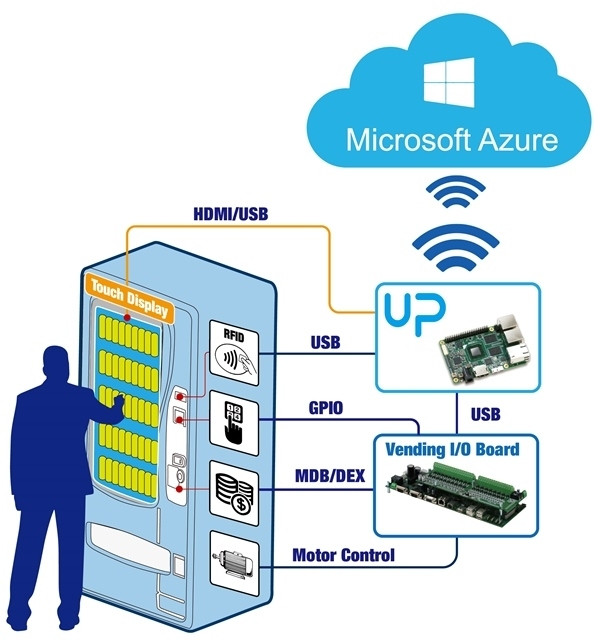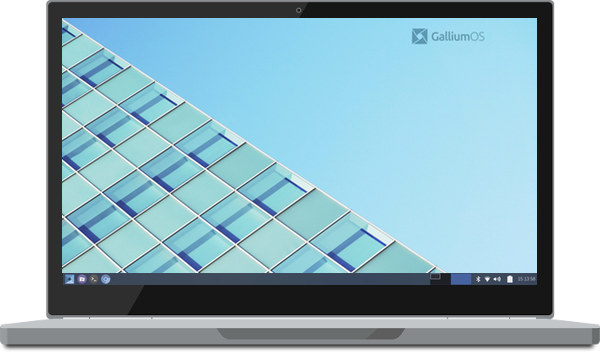Lanner Electronics, a company headquartered in Taiwan, and specializing in network appliances and rugged industrial computers, has recently introduced NVA-3000 embedded computer powered by Intel Pentium N4200 or Atom x7-E3950 “Apollo Lake” processor, and targeting video surveillance & machine vision applications with 8 PoE+ ports. Lanner NVA-3000 specifications: SoC Model NVA-3000A – Intel Pentium N4200 quad core Apollo Lake processor @ 1.10 / 2.50 Hz with 18 EU Intel HD graphics 505; 6W TDP Model NVA-3000B – Intel Atom x7-E3950 quad core Apollo Lake processor @ 1.60 / 2.00 GHz with 18 EU Intel HD graphics 505; 12W TDP System Memory – 4GB LPDDR4 2400MHz via 1x SO-DIMM slot Storage 32Mbit SPI Flash for BIOS, 2x SATA ports, 1x 3.5″ SATA/SSD drive bay, eMMC flash Model NVA-3000A – 8GB capacity Model NVA-3000B – 64GB capacity Network Connectivity Ethernet controller – Intel I210IT, I210IS, Marvell 88E6390 Ethernet Switch, 88E1512 PHY 2x […]
Qotom Q180P/Q190P Mini PC Comes with Four RS-232 DB9 Connectors
Earlier today, I covered Beelink KT03 “Client Computer”, an Apollo Lake barebone mini PC with two COM ports . But as you must already know, people on the Internet are hard to please, so some readers may have thought “meh, no Thunderbolt”, “lol, Apollo Lake… so old”, “where’s the NVMe socket?”. I won’t be addressing those concerns in this post, and instead I will focus on the “meh, only two COM ports, I need four!” crowd. So I went a little web search, and found another low power compact mini PCs with not two, but four COM ports. Qotom Q180P/Q190P are Cherry Trail mini PCs based on Intel Celeron J1800 / J1900 dual/quad core processor respectively. Qotom Q180P/Q190P specifications: SoC (one of the other) Intel Celeron J1800 dual core processor @ 2.41 GHz (base) / (turbo) 2.58 GHz with Intel HD graphics; 10W TDP Intel Celeron J1900 Quad core processor […]
Three Add-on Boards for UP Board and UP Squared – UP-AUDIO HAT, UP-CAMERA HAT, UP-POE HAT
AAEON has announced three add-on boards for their Intel based UP board (Cherry Trail) and UP Squared board (Apollo Lake): UP-AUDIO HAT – Features external ports for a microphone and speakers/headphones UP-CAMERA HAT – Comes with two FPC/FFC connectors for 2M security camera UP-POE HAT – Adds WAN and LAN Gigabit Ethernet ports and PoE support UP-AUDIO HAT AAEON’s UP-Audio HAT currently only works with UP board, and features the following: Audio Codec – Realtek ALC5672 3.5mm Audio Jacks – 1x Line out, 1x MIC Headers – 2x speaker Built-in Components – 2x digital microphones, 1x buzzer Connects to board via 40-pin GPIO female header Dimensions – 85 mm x 56 mm The board is supported in Windows 10, Android 6, and Ubuntu 16.04. UP-CAMERA HAT The camera board works with UP Board, UP Squared and UP Core boards. UP-CAMERA HAT specifications & features: 2x MIPI CSI-2/ DSI DPHY Re-timer […]
NanoCOM-APL Apollo Lake COM Express Module is Designed for Machine Vision & Factory Automation
AAEON has just launched NanoCOM-APL, a Type 10 COM Express module based on Intel Apollo Lake Atom, Celeron, or Pentium processor with up to 8 LPDDR4 memory, and on-board support for dual MIPI CSI interfaces. The module is designed for machine vision and factory automation, and also features Gigabit Ethernet, optional on-board eMMC flash, PCIe x4, ten USB interfaces, and more. NanoCOM-APL Apollo Lake COM Express Module There are currently three variants of NanoCOM-APL module with the following specifications specifications: SoC NANOCOM-APL-A10-0001 – Intel Pentium N4200 quad core Apollo Lake processor @ 1.10 / 2.50 GHz with Intel HD Graphics 505; 6W TDP NANOCOM-APL-A10-0002 – Intel Celeron N3350 dual core Apollo Lake processor @ 1.10 / 2.40 GHz with Intel HD Graphics 500; 6W TDP NANOCOM-APL-A10-0003 – Intel Atom x7-E3950 quad core Apollo Lake-I processor @ 1.60 / 2.00 GHz with Intel HD Graphics 505; 12W TDP System Memory – […]
UP AI Edge Enables Artificial Intelligence on the Edge with Intel CPU, GPU, VPU and FPGA Solutions (Crowdfunding)
Back in February of this year, AAEON introduced their UP AI Edge family of products with UP AI Core mini PCIe card based on Intel Movidius Myriad 2 VPU (Vision Processing Unit), and UP Core Plus board powered by a choice of Apollo Lake processors, and supporting AI Plus FPGA and AI Net Ethernet expansion boards. The company has now launched a Kickstarter campaign for those boards, and added several new products including Vision Plus with three Movidius Myriad 2 VPUs, AI Core M2 with two Movidius Myriad2 VPU in M.2 2280 form factor, as well as the Up Squared AI vision development kit for OpenVINO toolkit. I won’t go through the products announced in February, but let’s have look at the new boards and cards. Vision Plus Board Vision Plus Specifications: VPU – 3x Intel Movidius Myriad 2 VPUs with 512 MB DDR Connectivity – 1x Gigabit Ethernet USB […]
Mi Mini PC is a $150 Pocket-Sized Windows 10 Mobile PC with a 5″ Touchscreen Display (Crowdfunding)
Around 2 years ago, I reviewed GOLE1 mini PC running Windows 10 and Android 5.1, powered by an Intel Atom x5-Z8300 Cherry Trail processor with 4GB RAM and 64GB SSD. It also came with a 5″ 1280×720 display and a battery, so you could use it on the go. I discovered several issues related to WiFi, USB 3.0, Windows 10 on a 5″ display, among others, but still found it was an interesting concept. Mi Mini PC – unrelated to Xiaomi Mi products – looks very similar to GOLE1, but comes with better specifications including an Atom x7 processor, 8GB RAM, and a 128GB SSD. Mi Mini PC specifications: SoC – Intel Atom x7-Z8750 quad core Cherry Trail processor @ 1.60 / 2.56 GHz with 16EU Intel HD Graphics; 2W SDP System Memory – 8 GB RAM Storage – 128 GB SSD (upgradeable to 256 or 512 GB) + micro […]
AAEON Releases an Intelligent Vending Machine Development Kit based on UP Board
UP board is a low cost development board powered by an Intel Atom x5-Z8350 Cherry Trail processor with 1GB to 4GB RAM, and 16 to 64GB eMMC flash that mostly follows Raspberry Pi 3 form factor. AAEON is now offering an “intelligent vending development kit” featuring UP board together with a vending machine controller (VMC) board, a motor for the machine’s internal mechanisms, a camera, a QR Code device, and all the necessary cables, as well as optional WiFi and Bluetooth modules. Some details about AIOT-MSSP01 Mini SSP Vending control board: “Intel Intelligent Vending Based” Motor Control – 24V or 12V, Supports GPIO, DC, PWM Type, Supports up to 160 DC Motors Support LCD and Keypad Feature I/Os Vending machine specific interfaces / standards 1x MDB (MultiDrop Bus) 1x DEX (Digital EXchange) 1x Protocol A (EXE) 1x 1-WIRE 4-channel ADC x 1 4-channel Relay GPIO for 12V & 5V by […]
GalliumOS is a Linux Distribution for (Intel) Chromebooks & Chromeboxes
When I wrote about Crostini VM to run Linux apps on Chromebooks last week, I was informed about GalliumOS, described as a fast and lightweight Linux distro for ChromeOS devices – meaning Chromebooks and Chromeboxes – that is based on Xubuntu. Compared to ChromeOS, GalliumOS – and other Linux distributions – provides the ability to run more programs and more flexibility, and GalliumOS is said to deliver improved performance, longer battery life, better touchscreen support, etc.. compared to competing Linux distributions. You can go over the Download page to retrieve an image for your Chromebook or Chromebox, and either replace ChromeOS or go for a dual boot setup. The distribution does not support any Arm Chromebooks for now, and only works with some Intel devices with or without caveats depending on the model used. Check out the hardware compatibility matrix for details. The source code can be found on Github. […]


